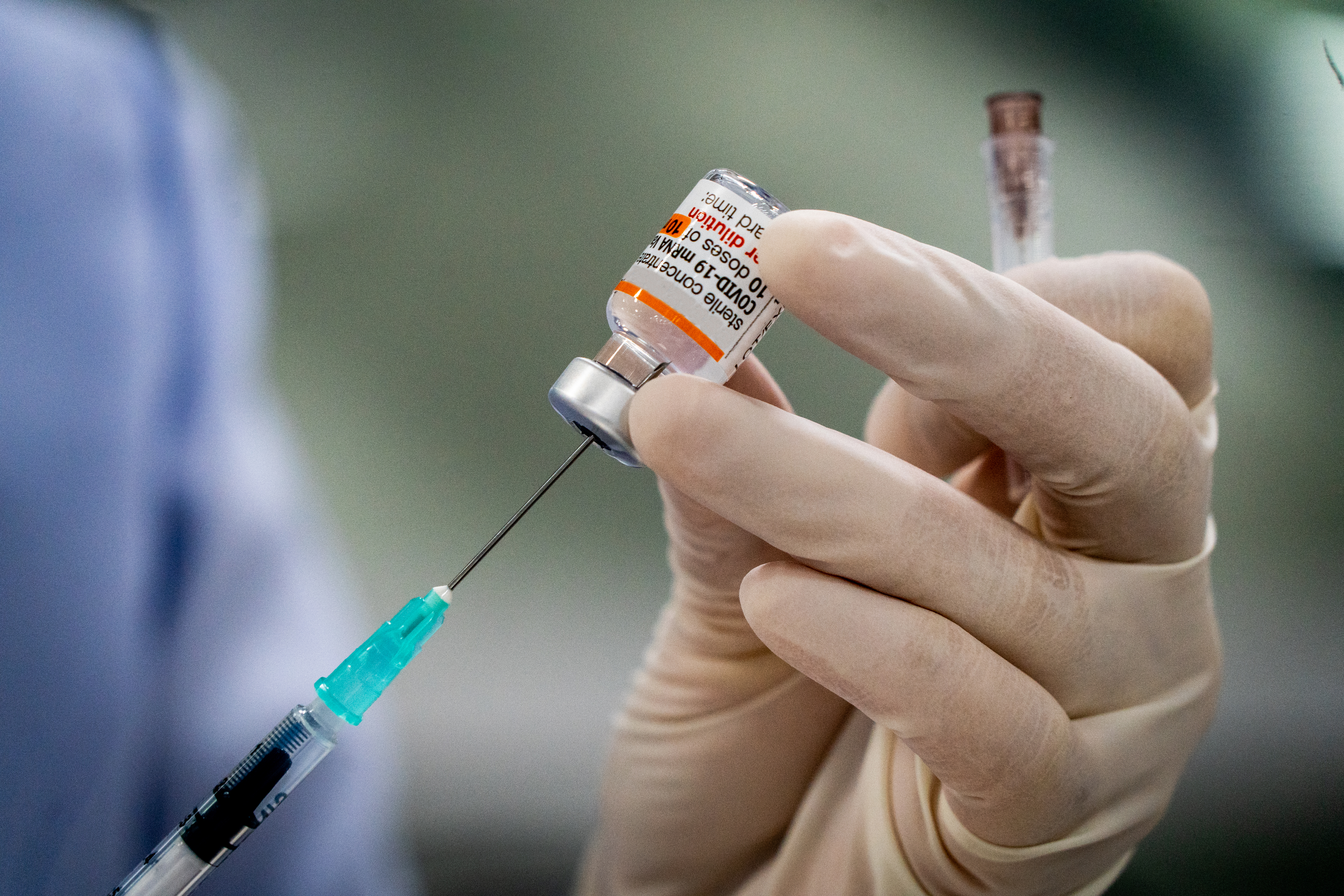How and Where to Get COVID-19 Vaccines and Boosters in Hawaii
Which vaccines are available and who can get them?
- Pfizer and Moderna: The updated mRNA vaccines became available in September 2023 and replaced any previous versions. The Centers for Disease Control and Prevention recommends that people 6 months and older get the updated vaccine, which targets a more recent strain of the omicron variant.
People age 5 and older should get one dose of the updated vaccine, regardless of how many and which vaccines they previously received. Children between the ages of 6 months and 4 years may need more than one shot, depending on their age and vaccination status, according to CDC recommendations.
- Novavax: This vaccine, which uses a more traditional technology, is authorized for people 12 and older. You will need two shots given three to eight weeks apart for a full primary series.
The Food and Drug Administration is evaluating Novavax’s omicron-specific vaccine, which is expected to become available later.
The Johnson & Johnson vaccine is no longer available in the U.S.

Which boosters are available and who can get them?
- Pfizer and Moderna: The updated vaccine has replaced the bivalent booster. The CDC recommends waiting at least two months after your last dose before getting the latest shot.
People with compromised immune systems may receive additional doses of the updated vaccine, depending on their vaccination history. More information is available at the CDC’s website.
- Novavax: This option is available to people 18 or older at least six months after they’ve completed their primary series, according to the CDC. You only may receive a Novavax booster if you haven’t already received a booster and cannot or will not receive an mRNA vaccine.
Where can I get a vaccine or booster?
Vaccines are administered at retail pharmacies, including Walgreens, Walmart and CVS, local clinics and other locations, such as doctor’s offices. Use the federal government’s vaccine website Vaccines.gov to search for vaccination sites by zip code. Get the same information by texting your zip code to 438829 or by calling 800-232-0233. You can check with your primary care physician’s office to see if COVID-19 vaccinations are offered. If you are a veteran, the Department of Veterans Affairs offers COVID-19 vaccinations at VA facilities. Sign up online or call 800-827-1000 to make an appointment.
More information about COVID-19 vaccines also is available at the Hawaii State Department of Health website. Or you can visit the health department’s Facebook page or call 808-586-4400.
Do I have to pay for the vaccination?
The federal government is no longer covering the cost of the vaccines, but most people with Medicare, Medicaid or private insurance will not have to pay.
The CDC’s Bridge Access Program will temporarily provide free vaccines to adults who either do not have health insurance or whose health insurance does not cover the cost of the vaccine.
Be aware that scammers often purport to offer COVID vaccines and treatments and try to charge for them. AARP's Fraud Watch Network is tracking the latest scams.
Can I mix and match vaccines?
It’s safe and effective to receive an updated Pfizer or Moderna vaccine at least two months after your last dose — no matter which brand you’ve received in the past, including Johnson & Johnson.
The Novavax booster can only be used as a first booster shot for people 18 and older.
How are the updated Pfizer and Moderna vaccines different?
The updated vaccines only target one strain of the omicron variant, called XBB.1.5, and are recommended by the CDC to protect against more recently circulating strains of the virus. The bivalent boosters targeted the original strain of the virus and two omicron subvariants, BA. 4 and BA.5.
What should I bring to my vaccination or booster appointment?
Some vaccination sites ask for proof of identity or eligibility. Bring a driver’s license or other state-issued ID that shows your name, age and state residency, along with your health insurance and vaccination cards, if you have them.
If you’ve lost your vaccine card, you can call the site where you were vaccinated to request a new one or a copy of your vaccination record. You can also contact your state health department to request a replacement card or a copy of your record.
Can I get the COVID-19, RSV and flu vaccines at the same time?
According to the CDC, it is safe to receive the flu and updated COVID-19 vaccines simultaneously, although you are a little more likely to experience side effects, such as a headache and fatigue. Adults 60 or older who qualify for the RSV vaccine may also receive that at the same time as the others, but some health experts suggest spacing them out. Contact your health care provider for more information.
How protected am I postvaccination?
All vaccines reduce the risk of COVID-19 infections and are highly effective at preventing severe illness and death from the disease. No vaccine is 100 percent effective, and infections can still occur postvaccination.
Editor's note: This guide was updated on Sept. 28, 2023, with new CDC recommendations.



